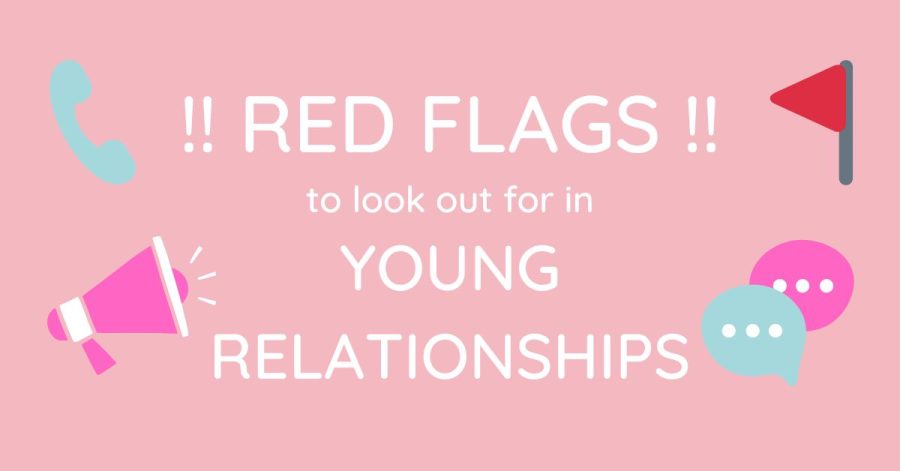Red flags to look out for in young relationships
Teenagers, specifically high school students, often ignore red flags in a relationship because they are so focused on the good parts of the relationship and fail to see the harmful flaws that could potentially damage them in the future. Red flags are signs that warn you of potential danger. Teenagers need to be more aware of the harm that can stem from toxic relationships. 1 in 3 young teens in the U.S. is a victim of physical, verbal and mental abuse from their dating partner. What are these red flags and how do we avoid these red flags?
Red flag #1: Lack of communication.
The leading cause of many young relationships ending is lack of communication. Having good communication is the number one priority in relationships because it helps build trust, set clear expectations and boundaries, and overall creates a healthy relationship. Good communication shows your true self, how you solve conflicts together and helps to avoid misunderstandings that can be taken out of context. Talking about your boundaries and expectations is very significant. Talking about what you are uncomfortable with, what you expect in the relationship, and other things play a huge role in how the relationship will proceed forward. If your partner says something that you are not okay with, it is important that you speak up and communicate. If your partner continues to disrespect you and not communicate with you properly, this may be a sign that the relationship is not a good fit.
Red flag #2: Extreme jealousy and controlling behavior.
Constantly controlling what you wear, controlling who you are friends with and who you hang out with are major red flags. Gaslighting, manipulating, guilt-tripping and other negative factors go hand-in-hand with this red flag. Your dating partner should be uplifting your mood and hype you up, instead of bringing you down by belittling you. If your partner is constantly isolating you from the world and lowering your self-esteem, this is not OK and the relationship needs to be reevaluated because you deserve the best.
Red flag #3: Dishonesty and intimidation.
Your partner being dishonest with you and trying to make you feel fearful of your partner should raise a red flag. Of course, simply ending the relationship can be difficult if your partner does the following listed above. Your partner being dishonest and intimating you shows that they are simply trying to get their way and taking advantage of you. Honesty benefits both partners in the relationship and helps build trust, so speak to a trusted adult and ask for help.
It is important for teenagers to recognize these red flags in their relationship before it escalates. If you are experiencing any of the following, don’t hesitate to speak up.
- The National Teen Dating Abuse hotline is 1-866-331-9474
- The National Domestic Violence hotline is 1-800-799-723.
There are many red flags in high school relationships, so it is important to know you should never settle for less and don’t hesitate to reach out for help.





